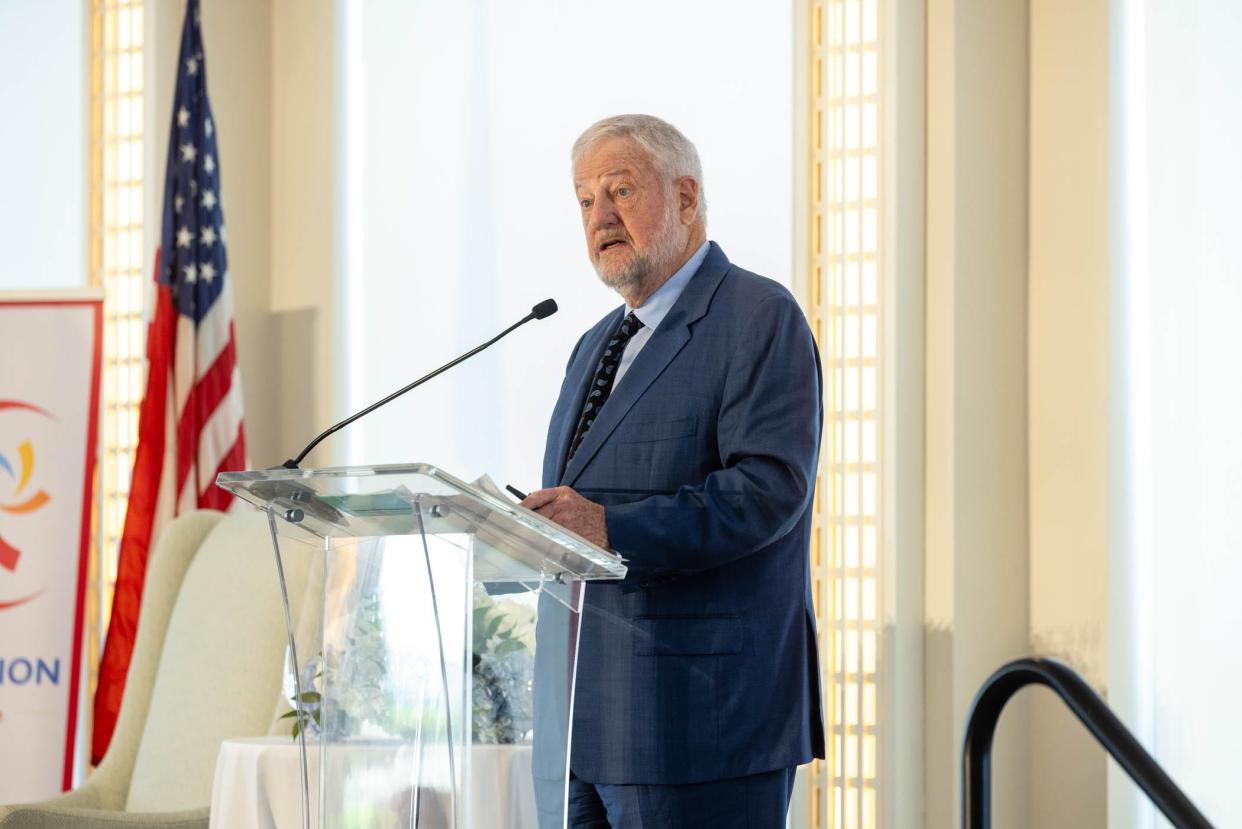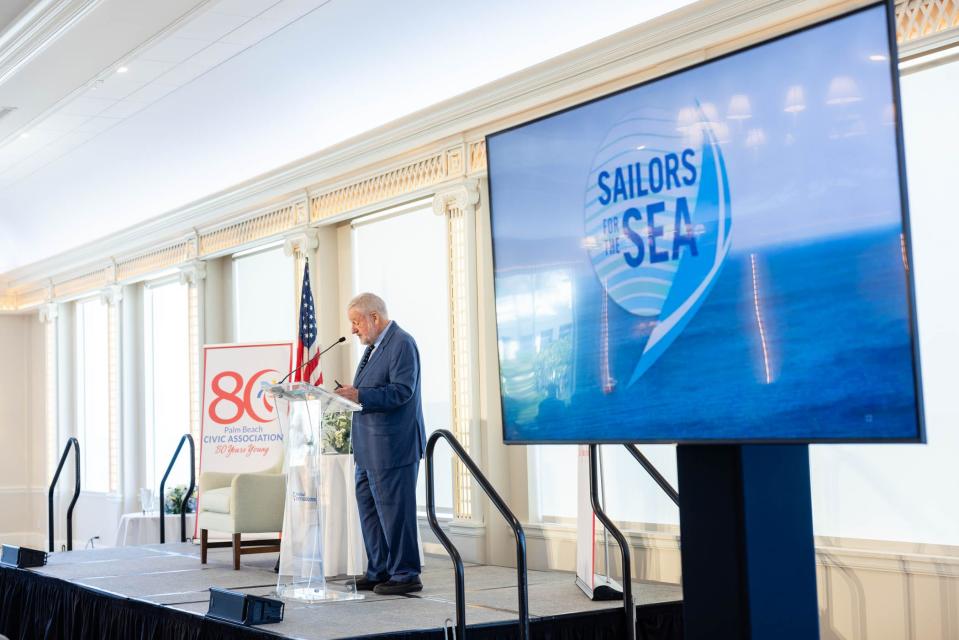Rockefeller scion warns of deteriorating ocean conditions during Palm Beach lecture

- Oops!Something went wrong.Please try again later.
Climate change will pummel Florida, even with the gains made by state-wide marine conservation efforts, conservation philanthropist David Rockefeller Jr. said Tuesday during lecture at The Beach Club in Palm Beach.
The Rockefeller scion cited rising sea levels, ocean temperatures and agricultural runoff as especially detrimental to the state whose economy is dependent on its shorelines.
“Florida’s shoreline gross state product or GSP is over $4 trillion dollars,” Rockefeller said during the lecture organized by the Palm Beach Civic Association. “It’s two and a half times its inland economy.”
With Florida's low elevation and high density coastal populations, Rockefeller said the state is especially vulnerable to the accelerating rising sea levels, a phenomenon that will exacerbate coastal flooding while also increasing the frequency and intensity of coastal storms.
While docks and seawalls can be raised to combat its rise, Rockefeller noted, "will it be enough and for how long?"
Also contributing to Florida's environmental woes are rising ocean temperatures and nutrient-filled agricultural runoff, which increase the rate and severity of toxic algae blooms known as red tide, Rockefeller said.
Last year, red tide bloom on Florida's Southwest coast led to the death of over three tons fish and marine life in Manatee County.
The warming ocean and runoff also contribute to the sargassum blooms that have caked the state's beaches in recent years, he said, which is a new phenomenon for the seaweed normally found hundreds of miles offshore in the open ocean between North America and Africa.
"When this otherwise benign, if not productive, garden comes ashore ... the result has been massive clogging of the beaches, subsequent widespread decay and noxious pollution," he said.
The warmer ocean temperatures also have had a catastrophic impact on coral reefs, Rockefeller said.
"Because of the combination of marine temperature rise and pollution from ship and land based activities, at least 25% of the world's coral are bleached and dying," he said.

Rockefeller says Florida's local conservation efforts have made notable gains
Rockefeller's conservation efforts began in the 1990s, when he served as citizen chair of the National Parks Foundation.
A lifelong sailor, he transitioned his focus to marine conservation, joining the Pew Charitable Trusts' Oceans Commission in 2000 and taking part in the commission's historic report on the health of U.S. marine water, published in 2003. In 2004, he co-founded the marine advocacy nonprofit Sailors for the Sea, which in 2018 joined global oceanic research and advocacy nonprofit Oceana, where he now serves on the board of directors.

Rockefeller noted the impact of Oceana's advocacy on Florida's marine conservation efforts, including its lead in advocating for an extension on a moratorium banning offshore oil drilling.
Florida's sea life has also seen recent gains, Rockefeller said, citing last year's record-breaking sea turtle nesting season.
He also noted the U.S Congress' 2007 amendments to the 1976 Magnuson–Stevens Fishery Conservation and Management Act, legislation had created the protections needed to reinvigorate the populations of 50 commonly eaten sea animals species back to sustainable levels.
"Isn't it great to have some good news against an often grim backdrop of climate challenges," he said.
More must be done to understand the Ocean's chemical processes, Rockefeller said, noting that, "scientists have been slow to catch up with the chemistry, biology and physical dynamics of marine systems even though the human species has been setting sail for well more than 1000 years."
Diego Diaz Lasa is a journalist at the Palm Beach Daily News, part of the USA TODAY Florida Network. You can reach him at dlasa@pbdailynews.com. Help support our journalism. Subscribe today.
This article originally appeared on Palm Beach Daily News: Climate change will harm Florida's waters, says Rockefeller scion

